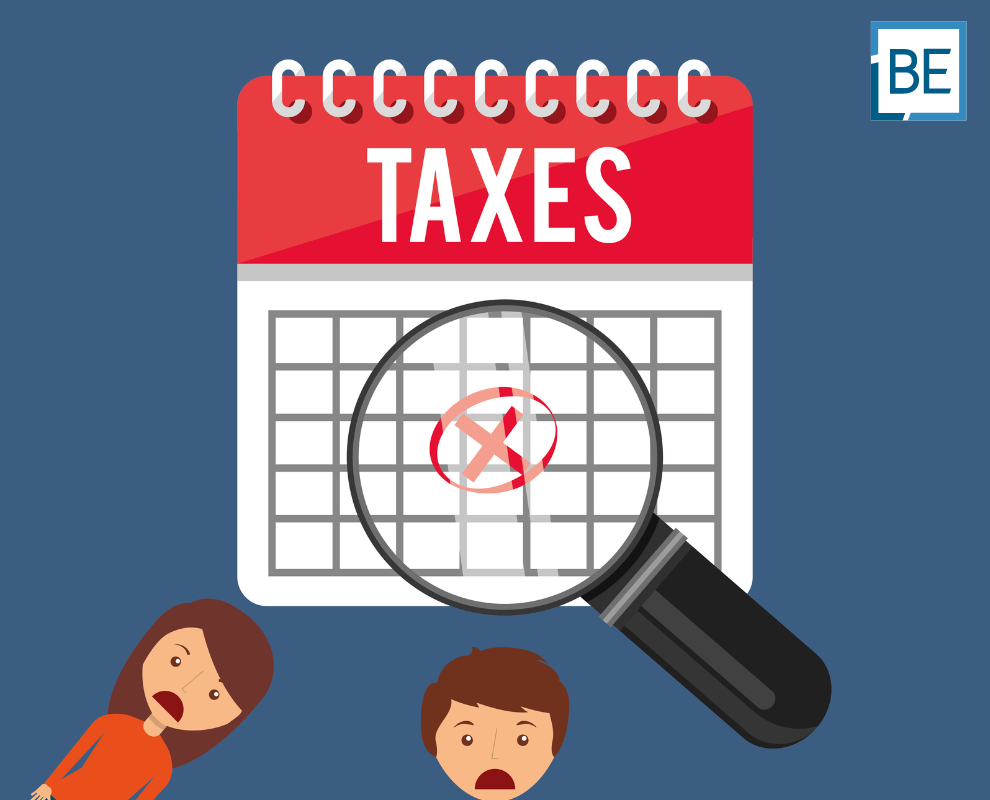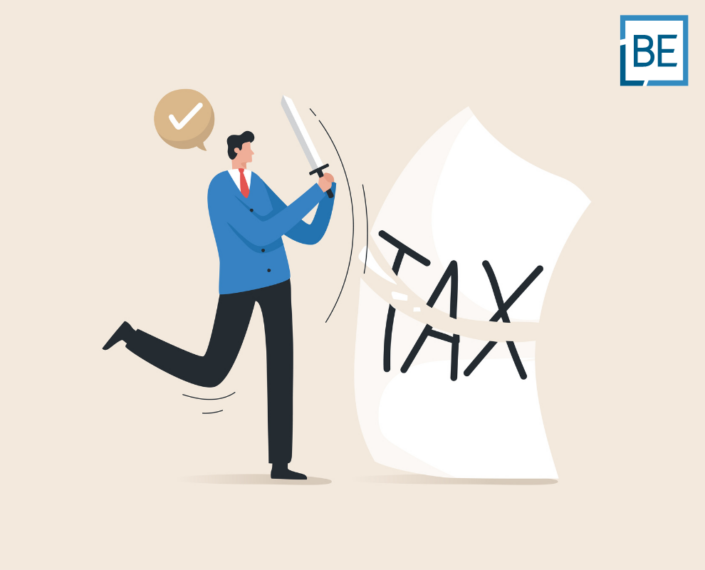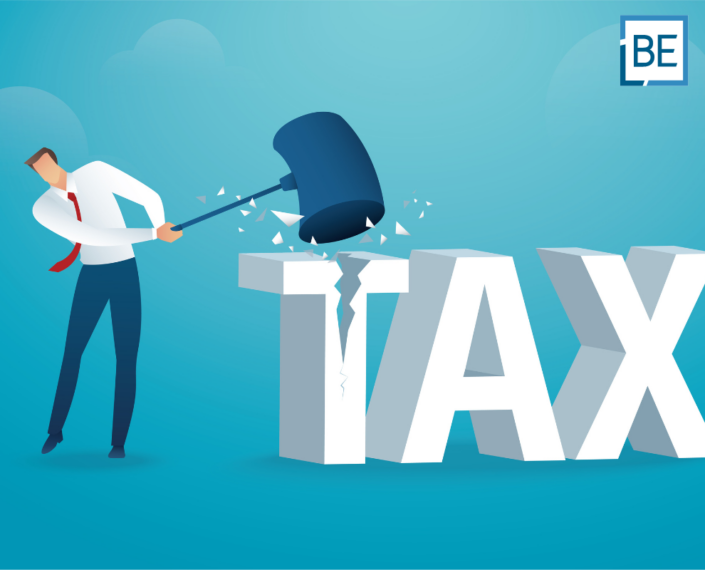Belaws Home ›› Thailand ›› Blog ›› Updates to income tax exemptions for the purchase of goods and services
legal
Updates to income tax exemptions for the purchase of goods and services
07/02/2023
Thailand’s tax landscape is constantly evolving, and individuals and businesses must stay informed. The recent release of the New Notice on Income Tax Exemption has changed how income from purchasing goods and services is taxed.
This update, effective from January 2023, affects individuals and businesses alike, and it’s crucial to understand the implications for your finances.
In this blog post, we’ll dive into the details of the New Notice on Income Tax Exemption and what it means for you.
Key points
- Purchasing goods and services in Thailand between the 1st of January 2023 and the 15th of February 2023 may be eligible for an income tax exemption.
- Tax invoices or receipts must be provided as evidence to claim the tax exemption.
- Tax invoices or receipts for amounts up to 30,000 baht can be in electronic or paper form.
- Tax invoices or receipts for amounts between 30,000 baht and 40,000 baht must be electronic only.
How does this update affect income tax exemptions in Thailand?
Thailand’s Revenue Department has recently issued a Notice relating to Income Tax (No. 431) on income paid for buying goods or services. This notice amends or updates the following issues:
- Evidence of payment
- Spousal Application of Income Tax Exemption
- Formal Requirements
- The impact of VAT calculation on income tax exemption under this notice
Evidence of payment
In Thailand, individuals can take advantage of a tax break on purchases up to 40,000 baht. This means that income earned from purchasing goods or services up to this amount is exempt from income tax.
However, having the right documentation to take advantage of this is crucial. As per Section 86/4 of the Revenue Code, tax invoices or receipts must be provided as evidence. To ensure compliance, check your document contains the details outlined in Section 105 bis of the Revenue Code and specifies your full name.
Here’s what you need to know:
- Tax invoices or receipts for amounts up to 30,000 baht can be in electronic, or paper form
- Tax invoices or receipts for amounts between 30,000 baht and 40,000 baht must be electronic only.
The electronic tax invoices or receipts must be produced by VAT-registered operators or persons listed under Article 12 of the Ministerial Regulations No. 384 (B.E. 2565 (2022) Issued under Revenue Code Governing Proceedings Relating to Documentary Evidences or Letters by Electronic Means.
This rule is in effect from January 1st, 2023, to February 15th, 2023. Stay compliant and take advantage of the income tax exemption on purchases with the right documentation.
Spousal Application of Income Tax Exemption
A spousal application for income tax exemption must adhere to the following principles:
- The income earner shall be exempted for up to 40,000 baht, given they are not an ordinary partnership or organization that is not a juristic person.
- If only the husband or wife earns income, income tax shall be exempted for the spouse who earns income according to the amount paid up to 40,000 baht.
Spouses who submit their tax filings separately can earn an income tax exemption of up to 40,000 baht.
For spouses who file their income tax returns together (by submitting their income as the income of either the husband or wife) will be exempt from income tax up to 40,000 baht. Joint submissions will also be exempted from income tax in relation to the share of the husband/wife, up to 40,000 baht.
Formal Requirements
To take advantage of the income tax exemption under this Notice, individuals must buy goods or services within Thailand between the 1st of January 2023 and the 15th of February 2023.
These goods and services must be bought in Thailand, and the purchase receipts must contain different particulars if the vendor is VAT registered or if the product is in the “One Tambon One Product Program (OTOP).”
Qualifying purchases must satisfy the following conditions:
| When paying for books or book service fees in electronic data format via online services: |
Tax invoices must be received under Section 86/4 of the Revenue Code if the vendors are VAT-registered operators. |
|
If the vendors are not VAT-registered operators, there must be receipts containing at least the particulars under Section 105 bis of the Revenue Code and the income earner’s full name. |
|
|
When buying goods in the One Tambon One Product Program: |
If the vendors are VAT-registered operators, the said goods must be registered with the Community Development Department, and tax invoices must be received from the vendors (under Section 86/4 of the Revenue Code). |
|
If the vendors are not VAT-registered operators, receipts containing at least the particulars under Section 105 bis of the Revenue Code mentioned above must be received. They must also have the income earner’s full name. |
How does the notice affect VAT calculation?
Should a VAT-registered operator, who is also an income earner, deduct the value-added tax in the tax invoice from the sale tax when calculating the VAT (as per Section 82/3 of the Revenue Code), they will not be able to use the payment to claim the income tax exemption.
For qualifying income tax exemptions under this Notice, the income-earner may deduct the amount from their assessable income under Section 40 of the Revenue Code after deducting expenses under Section 42 bis to Section 46 of the Revenue Code.
What is required to claim the income tax exception?
The Revenue Code required the following as per Section 105:
- Taxpayer identification number of the receipt issuer;
- Name or label of the receipt issuer;
- Serial numbers of the book and the receipt;
- Date of issuance of the receipt;
- Amount of payment received;
- Type, description, quantity, and price of the goods, only in the case of sale or hire- purchase of certain types of goods with a price of 100 baht or more.
Sellers must do the following:
- Specify a statement showing that the said goods are products from the One Tambon One Product Program for each item of goods or make a symbol showing that each item is a product from the One Tambon One Product Program and have a statement indicating that the said symbol refers to the products from One Tambon One Product Program on the tax invoice or the receipt, such as “OTOP,” “โอทอป,” or “One Tambon One Product.”
- Suppose all goods in the tax invoices or receipts are products from One Tambon One Product, and a statement or a symbol under (1) is not specified. In that case, the vendors who issue the tax invoices or receipts must affix a rubber stamp bearing their trade name or trademark with a statement on the tax invoice or the receipt reading “All Items of Goods Are Products from One Tambon One Product Program” (“สินค้าทุกรายการเป็นสินค้าหนึ่งตำบล”), or similar.
How can Belaws help?
You can talk directly to one of our experts for more information about income tax in Thailand.
Click here for a full list of our tax services in Thailand.
This article is for information purposes only and does not constitute legal advice.
Our consultations last for a period of up to 1 hour and are conducted by expert Lawyers who are fluent in English, French and Thai.
Consultations can be hosted via WhatsApp or Video Conferencing software for your convenience. A consultation with one of our legal experts is undoubtedly the best way to get all the information you need and answer any questions you may have about your new business or project.
USD 150
Up to 1 hour
Online payment (Paypal or Credit card)
Legal consultation can be conducted in English, French or Thai
Legal consultations are handled by experienced lawyers from the relevant fields of practice
Frequently asked questions
Do expats pay income tax in Thailand?
Thailand imposes an income tax on any income earned in Thailand for both resident and non-residents individuals. This tax will be imposed regardless of whether such income is paid in or outside of Thailand.
Do Thai citizens pay taxes?
Yes, Thai citizens are subject to tax.
What happens if you dont pay tax in Thailand?
You will be subject to Imprisonment for a term up to 1 year; or a. Fine up to 200,000 Baht; or. Both.
What’s the average cost of living in Thailand?
On average, $1,500 a month is accepted as a suitable income for a comfortable life in Thailand.
How can I avoid tax in Thailand?
It is not recommended to avoid paying tax in Thailand.
Do expats pay tax?
Thailand imposes an income tax on any income earned in Thailand for both resident and non-residents individuals. This tax will be imposed regardless of whether such income is paid in or outside of Thailand.
How is income tax calculated in Thailand?
Thailand makes use of a progressive tax system for personal income tax, the rates of taxation can be seen below:
| Taxable Income | Tax Rate |
| 0 – 150,000 | Exempted |
| 150,001 – 300,000 | 5% |
| 300,001 – 500,000 | 10% |
| 500,001 – 750,000 | 15% |
| 750,001 – 1 million | 20% |
| 1,000,001 – 2 million | 25% |
| 2,000,001 – 5 million | 30% |
| 5,000,001 or more | 35% |
Related articles
Subscribe today
Subscribe today
To our newsletter for all the latest legal news
in South East Asia, Belaws updates and
special promotions on our services.
To our newsletter today for all the latest legal news in South East Asia,
Belaws updates and special promotions on our services.







